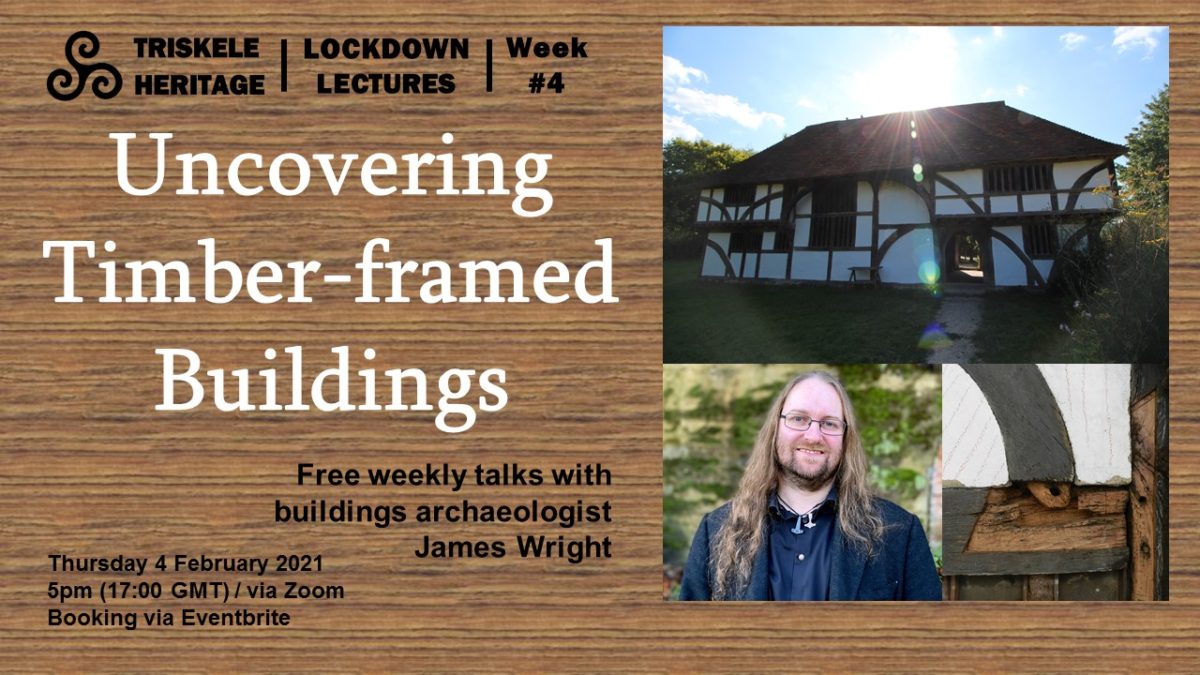With the onset of Britain’s third covid-19 lockdown within a year, Triskele Heritage will be stepping up to try and provide some (hopefully) entertaining and informative free public talks. The weekly lockdown lectures will feature the fruits of our research so you can be sure that the content will all be bang up to date!
Each week we will host a lockdown lecture freely accessible to anyone with a web connection via Zoom. All you need to do is register via Eventbrite and – when the time for the talk rolls around – grab your favourite beverage of choice, get comfy and enjoy.
Our second event will take place at 17:00GMT on Thursday 4 February 2021 and will focus on Uncovering Timber-framed Buildings.
Booking is now available via Eventbrite.

Due to our licensing agreement with Zoom tickets for each event will be limited to 495 places. If you cannot make it after booking, please do return your ticket so that someone else can enjoy the talk instead.
Please note that this is a live event only and there will not be a recording of the talk available afterwards.
If you have a question about the event – in the first instance please see our FAQs section. The answer will almost certainly be in there.
More information on the talk
The second half of the twentieth century saw a significant rise in the study of ‘ordinary’ mediaeval and early modern buildings constructed by and for peasant, yeoman and urban communities. Typically made from local materials, such buildings might incorporate timber, mud, straw, stone and chalk components – yet their survival rate is surprisingly widespread.
This introductory talk looks at pre-modern building materials, construction techniques and historical developments of vernacular architecture relating to domestic occupation and agricultural systems. It will conclude with a case study analysing the development and phasing of an incredible “lost” hall house in the midlands.
The speaker, James Wright, is an award-winning buildings archaeologist. He has two decades professional experience of ferreting around in people’s cellars, hunting through their attics and digging up their gardens. He hopes to find meaningful truths about how ordinary and extraordinary folk lived their lives in the mediaeval period.

